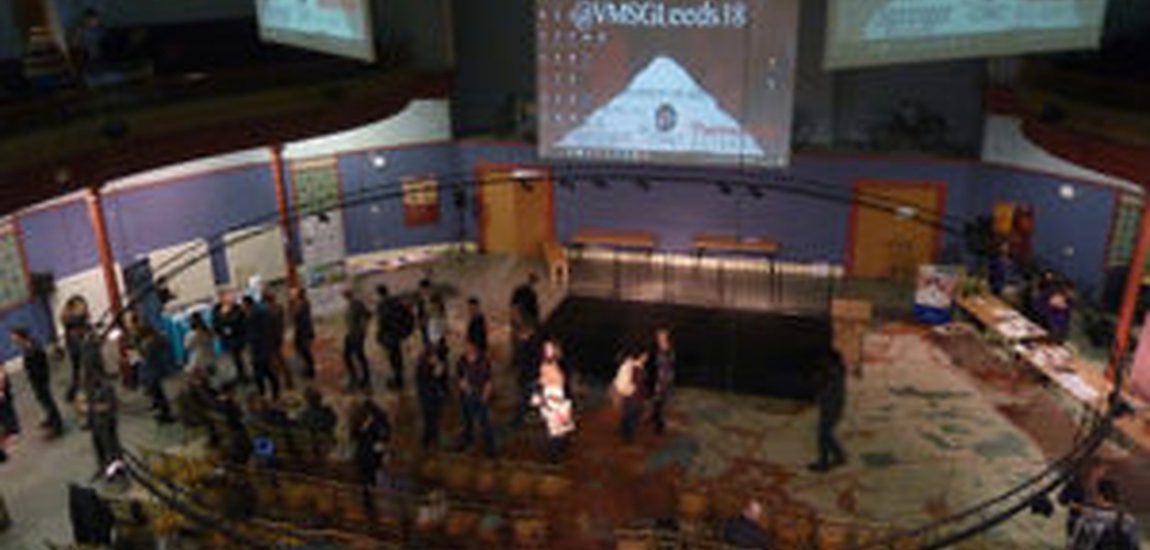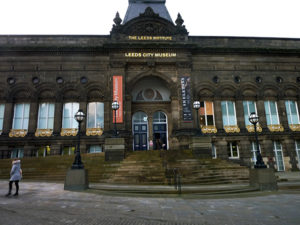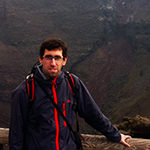
All things volcanic and magmatic at VMSG 2018
Volcanic and Magmatic Studies Group Conference 2018. Leeds, UK, 3-5 January 2018

During the first week of the year I travelled to Leeds, UK, where the Volcanic and Magmatic Studies Group (VMSG) 2018 conference was held from January 3rd to 5th. I am very grateful to the EAG for supporting my trip there with a Student Sponsorship. This is my second time at a VMSG conference after a great experience in Dublin two years ago, and it was an excellent opportunity to present the final results of my PhD thesis, which is now in its final stage. During the three days, 190 attendees joined the event and 133 talks and posters were presented. A wide majority of them were early stage researchers, and indeed the organization specially encourages PhD students to perform talk presentations.
I arrived at Leeds late on January 2nd after a flight to London and two and a half hours of train, and early on the 3rd I headed to the Leeds City Museum, where the meeting was taking place. This is a nice 19th century building located in Millenium square, that previously served as the city’s Mechanical Institute.
That very first morning I was able to present my work in a talk. In my PhD, I performed a series of high pressure and high temperature experiments with two natural melts of different composition (a shoshonite and a rhyolite from Vulcano Island, Aeolian archipelago, Italy) to decipher the chemical exchange by diffusion between the two melts during magma mixing events. Since magma mixing events trigger some highly explosive eruptions, and diffusion is a time-dependent process, this kind of data is important to shed light on mixing to eruption timescales. In my talk, I explained how varying conditions (especially water content in the melt) condition the diffusion of trace elements between the two melts, and the peculiar behavior of rare earth elements that produced some unexpected and interesting results.
Having presented in the morning of the first day, I was then able to relax and enjoy the rest of the meeting. The conference continued with exceptionally high quality presentations and posters. I was especially interested in everything related to diffusion and its application to dynamics of magmatic systems. The first two days were mainly devoted to subduction and rift volcanism, and on Friday we heard about some ‘explosive ideas’ and beyond-the-vent processes. I also attended the two poster sessions on Wednesday and Thursday afternoon, and they were a great moment to discuss the particularities of some volcanic systems around the world and meet new people with similar interests. The meeting also allowed me to learn about some new analytical procedures, which I think are potentially useful to my own work. I will surely have a look at these in the future.
After the conference, there was always time for some relaxation. On Thursday night, we had the social dinner at Marriott hotel, and the other nights we gathered for dinner and visited some of the typical English pubs. For me, there was also time to have a walk around the city center and get to know Leeds a little more.
All in all, I would greatly encourage anyone working in volcanology and magmatism to attend VMSG in its successive editions, and most especially MSc and PhD students. As I mentioned above, the VMSG is particularly well suited for them, and they will find an excellent ambience there and will have plenty of opportunities to interact not only with other early stage researchers, but also many experienced researchers providing plenty of feedback.
About the author
Diego González García (Twitter: @dgonzalez_83) is a final year PhD student at the Petro-Volcanology Research Group (PVRG) at the Department of Physics and Geology, University of Perugia, Italy. He is an experimental petrologist working with diffusion in melts under the project CHRONOS, aimed at understanding the chemical exchange processes in magma mixing events. This involves running HP-HT experiments (in collaboration with the Institut für Mineralogie, Leibniz Universität Hannover, Germany), as well as using a variety of analytical techniques and numerical modelling. His supervisors are Diego Perugini and Francesco Vetere (UniPG) and Harald Behrens (LUH).

